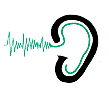Jan 26, 2026
Jan 26, 2026
 Listening is more taxing that reading, writing or any other form of communication. Majority of the times we come across situations, that require our ears to be gathering all the information they can. But just like the blend of good habits and the bad habits, we overlook the importance of listening. We try to contribute to the talker by distracting our mind, which does more harm than good.
Listening is more taxing that reading, writing or any other form of communication. Majority of the times we come across situations, that require our ears to be gathering all the information they can. But just like the blend of good habits and the bad habits, we overlook the importance of listening. We try to contribute to the talker by distracting our mind, which does more harm than good.
We look at the person and not the point he is trying to make. We try to take into picture his body language, his dress pattern and also how he might be as a person in real life. These pre conceived notions become a mental mountain, and as a result of this the point the talker is trying to make never reaches our mind. This can actually give us what we don’t want, rather than what we want.
Listening requires much more patience that reading or writing. This is because you have to unmask your self from the preset notions, control your mind from being distracted to the other not so endearing features of the talker. Your point of focus becomes the words coming out of the vocal chords of the talker and forming a logical picture of what he is trying to say, and how you can use it to your advantage. Its better to be judgmental after you have listened and taken into account the body language of the person who was speaking.
Ninety-six out of hundred people can be judged on the basis of their body language. This is because body language is something that comes naturally to you since childhood. It depends upon how your subconscious mind has been tuned since childhood by observing the body language of many people around you.
If one has been brought up in a place where his parents or idol of influence was more aggressive, then he is more likely to emphasize his point by punching his fist on the table or on air after making the point. If the person you are dealing with has been brought up in an environment where he was taught to take the other persons view into account, he will mostly have his legs spread out and his hands on the arms of the chair or on his feet. This indicates that he is open to suggestions. He might also take interest in what you are speaking by leaning his head slightly on your side, which means he is hanging onto every word you say. A person who usually lies or is more less likely to defend only his point of view, by not taking the other persons point of view into account, is more likely to cross his feet while talking and also by folding his hands and keeping them closer to his chest. Beware of such people, who wont disclose what they are feeling about something and they may go to any extent to stand by what they feel, however wrong it may be.
Also a person who tries to scratch his nose or ear in any conversation is low on confidence. If he is the kind of person who likes to comb his hair with his fingers, it indicates that he actually has understood less that what he should have. Also beware of the spectacled genius near you, who tries to adjust his spectacles quite a few times. He is low on confidence, but he gives you an impression that he will look into things as closely as he can. A person who tries to slide his spectacles above the nose by placing his finger on the nose, in between the left and right lenses, is a person who will always incorporate the views of both people in a conversation and find a middle route, which is acceptable to both.
Listening skills can also be improved by making an eye contact with the talker. The eyes give it all away most of the times. The eyes are always more expressive than other parts of the body I feel. This is because even when someone laughs, the eyes show the extent to which he is actually reacting. The eyes also express approval and disapproval in a much better way than facial expressions. Facial expressions can be put on by thinking for a second or two, but the reactions of the eyes are spontaneous.
The tone with which a person speaks can reveal more than the words that flow out of the tone. The tone can immediately tell you the intention, sincerity and commitment of the person. It is an important gauge. A monotonous person usually isn’t creative and likes only one approach to various things. A person who various the pitch and tone is one who is creative, and tries to see various approaches for a particular problem and use them accordingly. Such people are great conversationalists and are pretty outgoing and eccentric extroverts.
Sincerity in thoughts and action are at the best given by all of the above, eyes, body language and also the tone.
06-Sep-2002
More by : Deepak Chandrasekaran